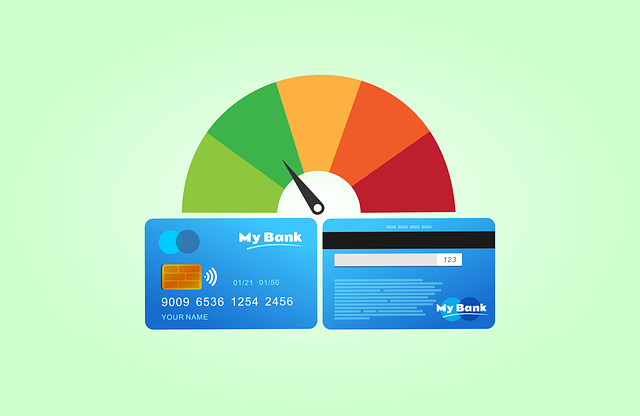What Are the Consequences of Bad Credit?

If you have ever been turned down for a car loan, mortgage or credit card or subjected to high-interest rates because of your credit profile, you have tested part of the consequences of bad credit.
Your credit score is the benchmark against which lenders determine whether to approve your credit application or not.
The score is calculated from your financial history and shows the extent of your creditworthiness and responsibility.
What Is Bad Credit
Simply put, bad credit is when your credit score falls below a certain numeric threshold indicating that you are a credit risk to lenders. The thresholds vary depending on the Credit Reference Agency (CRA) you are looking at.
In the UK, there are three main CRAs- Experian Ltd, TransUnion International UK Limited, and Equifax Limited. Each one of them has a separate credit scoring model which gives credit scores based on a scale. Here are their scoring ranges to help you visualise where you fall.
Experian
The Experian Credit Scoring ranges from 0 to 999. Here is the category breakdown for the different rankings.
- Excellent: 961 – 999
- Good’: 881 – 960
- Fair: 721 – 880
- Poor: 561 – 720
- Very Poor: 0 – 560
TransUnion
Initially known as Callcredit, TransUnion’s credit scoring scale ranges from 0-710. Here are the different categories and score brackets.
- Excellent: 628-710
- Good: 604-627
- Fair: 566-603
- Poor: 551-565
- Very Poor: 0-550
Equifax
Equifax scores range from 0-700. Here is how to know where you lie on their scoring scale
- Excellent: 466-700
- Good:420-465
- Fair: 380 -419
- Poor: 280-379
- Very Poor: 0-279
The Factors That Harm Your Credit Score
Your credit score is affected by several factors. Knowing them will help you avoid drifting into the ‘bad credit’ zone or assist you to get out of your poor credit pothole. Here are some of the top factors to watch out for.
- Your repayment history-Any missed or late payments affect pull down your credit score
- Exceeding your credit limits
- Making lots of credit applications within a short span
- Having joint accounts with a person who has bad credit
- Constantly changing your physical address
- Not registering to vote
- Cases of bankruptcy, county court judgements (CCJs) and defaults appearing against your record
Lenders can either do a soft search or a hard search before approving your credit. A soft search or credit check only considers part of your credit history to determine the success of your application. For instance, if you apply for instant guarantor loans, most lenders will run a soft check. This won’t have an impact on your credit score.
Hard credit checks on the other hand consider all the information on your credit report. The more you have companies run these checks against your record, the harder the beating your credit score takes. If you can, avoid them.
What Are the Consequences of Bad Credit?
Having looked at what bad credit is and how it comes about, here is what you should expect when your credit score is categorised as poor or very poor.
Difficulties in Loan Approvals
Borrowers with bad credit are considered by lenders as having a high risk of default. Consequently, their loan applications whether it is car loans, mortgages or consumers loans may be declined.
High-Interest Rates
If you are lucky to have your loan approved, it may come at a high cost. That means a high-interest rate above the market. Sky-high interest rates are some of the mechanisms lenders use to cover themselves against risky borrowers.
Throughout the loan period, your instalments will comprise more of interest than principal. To help you compare different loan products out there even with bad credit, always look at the loan Annual Percentage Rate (APR) before you sign on the dotted line.
Higher Insurance Premiums
With bad credit, you must be prepared to pay insurance premiums above the normal quotes. Insurance companies consider bad credit clients as people with a high likelihood of filing claims during their insurance contract period.
For this reason, when applying for an insurance cover or policy, insurance agents and brokers run credit checks to see how much of a risk you are to their business. Sub-par credit scores attract higher monthly premiums to help the insurers cover themselves against the anticipated claims.
Difficulties Getting Employment
Today, most employers have specific criteria to be satisfied before a potential employee can be hired. This is more so with jobs in the financial industry or top management openings. A bad credit history characterised by exorbitant outstanding debts and a poor payment record is likely to disadvantage you when being screened for employment.
Such records water down any strong points you may have and put a question mark on your character as a professional.
Challenges Starting or Running a Business
If you have a ‘Poor ‘or ‘Very Poor’ credit score, starting a business can be challenging for you. This is because you may need credit at one point or the other either to bridge a cash flow gap or help finance capital expenditure.
Lenders are not just sceptical about startups but also the people behind these startups if they have bad credit scores. If you get into a partnership or directorship with someone having bad credit, they may be the reason for the business being denied credit even if your score is excellent and the business idea is well pitched.
Other consequences include being denied lease approvals for an apartment if the landlord has a reason to believe you are too much of a risk to their business. Much like banks and insurance companies, landlords are also watchful to avoid signing tenancy agreements with clients who may be delinquent on their rentals.
Conclusion
Having seen the dangers and inconveniences of bad credit, you must run a self-check and remedy your credit situation as early as now. Simply, get your credit report from any or all the three major CRAs, go through the entries for any errors and start rewriting your financial story.
With the right strategy, you can quickly put your finances in order by tracking your spending, honouring debt obligations in time, checking that you don’t exceed your credit card limits and avoiding making multiple credit applications in close succession.




